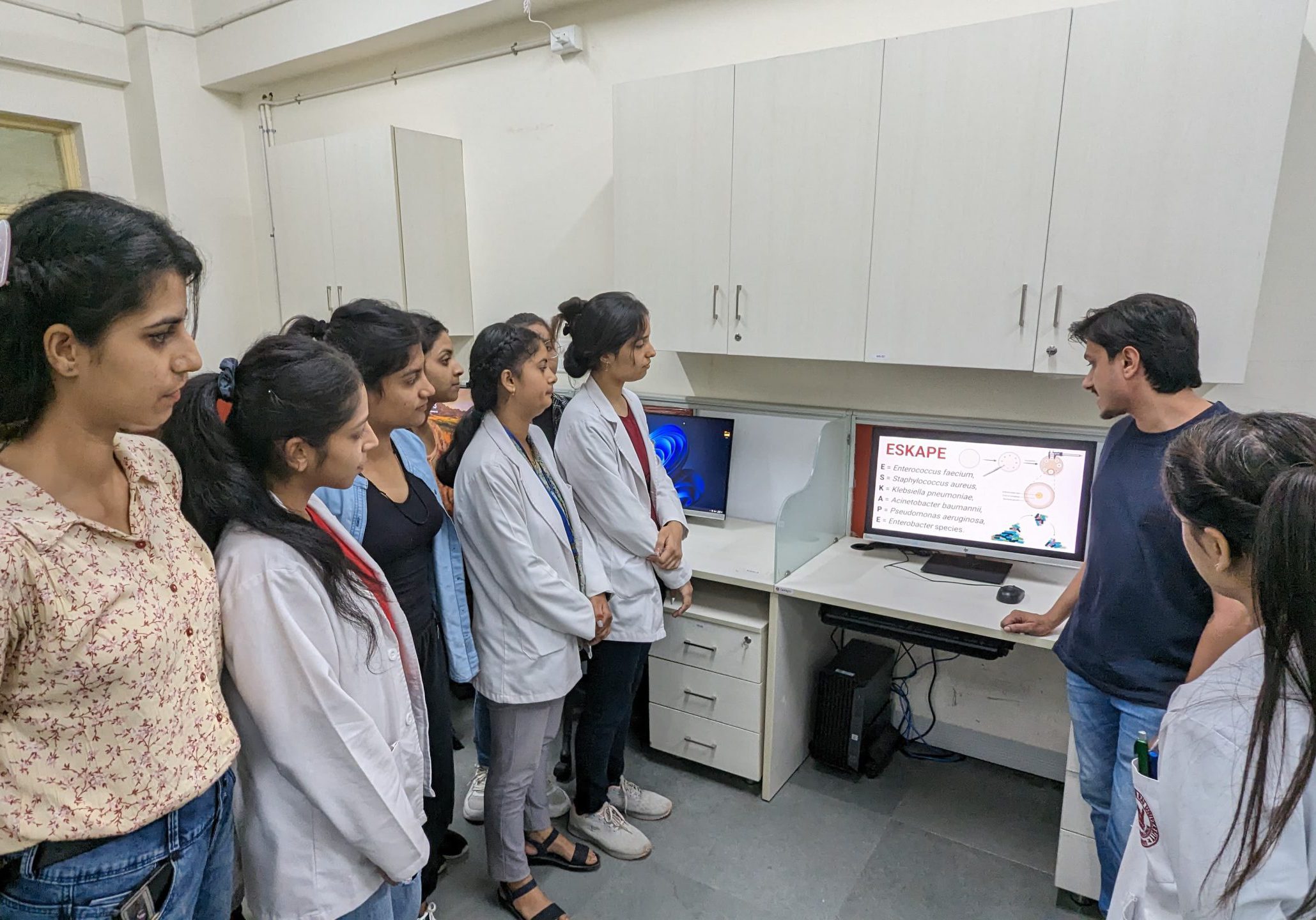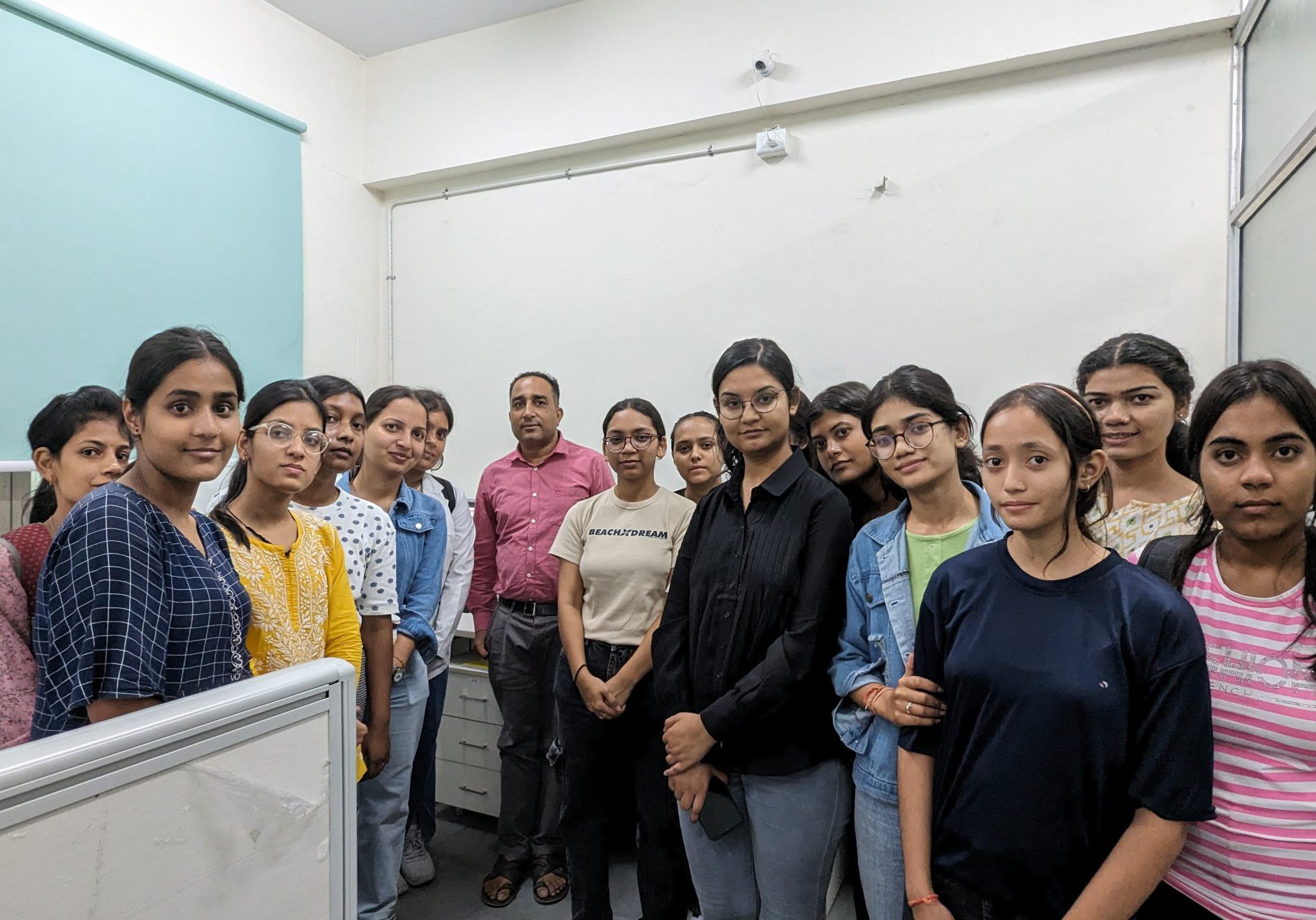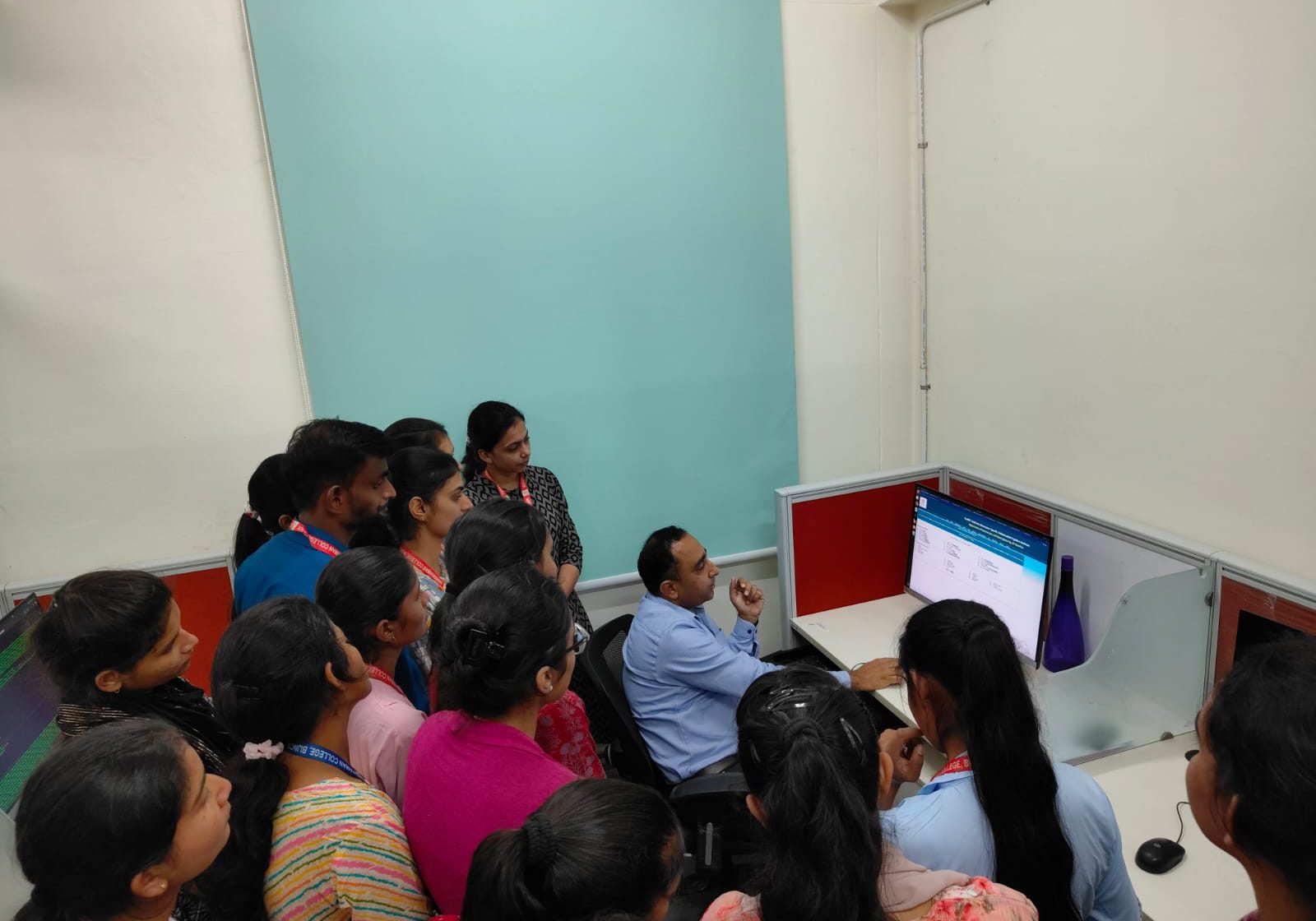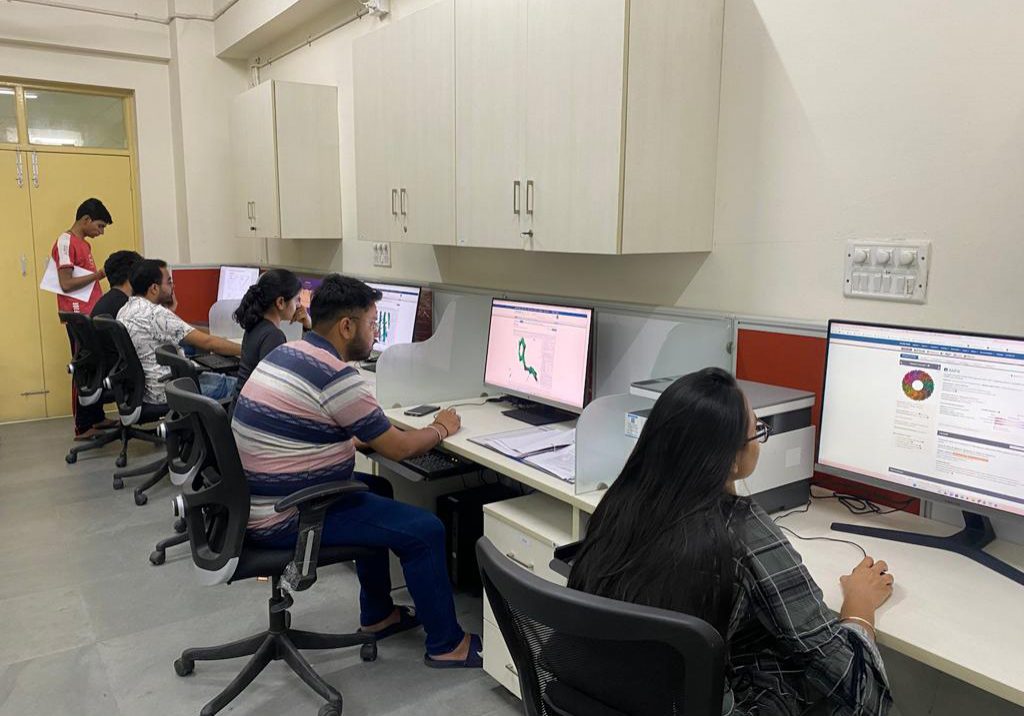IIT Roorkee
Targeting Tomorrow: Unraveling Regulatory Networks employing bioinformatics for Drug Development and Antimicrobial Solutions at IIT Roorkee
The Bioinformatics Center at IIT Roorkee is dedicated to the study of proteins for drug development, vaccines, and plastic biodegradation technologies. Additionally, the center is conducting research on novel antimicrobials to combat antimicrobial resistance, with a group identifying FDA-approved drugs for tackling coronavirus infections. This center plays a crucial role in supporting research students, as well as bachelor’s and master’s students in applied bioinformatics.
The center focuses on the studies related to recombinant production of drug targets from bacterial and viral origins. This involves identifying and characterizing unknown functional drug targets, determining their structure using X-ray crystallography or in-silico prediction, identifying drug-like compounds, selecting lead molecules, optimizing them using pharmacophore modeling and scaffold screening, and evaluating their biophysical and biochemical properties. Furthermore, the center actively identifies small molecule antivirals targeting porcine rotaviral proteins.
In response to the increasing prevalence of multi-drug resistance, the center is working on developing antimicrobials for ESKAPE pathogens and viruses. Their strategy involves the development of computer-aided structure-based drug discovery tools, incorporating the power of machine learning and artificial intelligence to identify potential inhibitors and their interactions with resistant bacteria and viruses. These tools are utilized by researchers for in-depth in-silico investigation of hypothetical proteins and enzymes, applicable in diverse fields for drug and vaccine development. The center is also benefiting students from other institutes in gaining effective knowledge about applied bioinformatics. Software for AI-based algorithms for exhaustive analysis and database management system tools are being implemented. The Center has developed a database such as RsABP (Resitance Specific Antibacterial Peptide Database).




The BIC facility serves as a vital knowledge hub for bioinformatics, offering exclusive computation facilities to students and researchers. The center specializes in the characterization of hypothetical proteins for bacterial infections, antimicrobial resistance, and treatments against coronavirus and mutated forms. The research group is also engaged in identifying new hypothetical proteins for the bioremediation of plastics to combat plastic pollution. Beyond scientific problem-solving, this center contributes to society by providing knowledge and treatments.
Collaborating with GBU, AIIMS-New Delhi, IVRI as NNP partners, the center explores drug targets from infectious microorganisms to identify structure-based anti-infectious agents against ESKAPE pathogens. Given the global threat of antimicrobial resistance, particularly affecting multidrug- resistant strains of 'ESKAPE' pathogens, the team employs a combination of experimental methods and machine learning with artificial intelligence to investigate the function of theoretical proteins.
Their ultimate goal is to develop drugs against multiple drug resistant strains of bacteria and viruses, aiming for impactful outcomes and drug testing through collaborative work.
